Depression Treatment Program
Living with a depressive disorder is an immense challenge that can permeate and affect all aspects of life. Rekindle your hope and find joy in life again at Cornerstone.
Begin your insurance verification today

Love Your Life Again at Cornerstone
The persistent feelings of sadness, emptiness, worthlessness, fatigue, and suicidal thoughts that accompany a Depressive Disorder make even small tasks seem monumental. Getting through each day while struggling with low motivation, poor concentration, sleep issues, and lack of interest in once-enjoyable activities requires tremendous effort and courage.
Seeking help and finding the right treatment to manage your depression can seem impossible. At Cornerstone, we not only make it possible; we make it simple. We understand what you’re going through, and when you reach out to us, you won’t go through it alone. We provide a safe and respectful environment with a personalized treatment plan that is designed to help you love your life again.
Understanding Depressive Disorders
What is a Depressive Disorder?
What is Major Depressive Disorder?
What Does Depression Feel Like?
Risk Factors
Diagnosis
Depressive Disorders encompass a range of conditions characterized primarily by prolonged periods of persistent sadness, despair, and loss of interest or pleasure in usual activities.
The most common form is Major Depressive Disorder, which impacts all elements of life from mood to thinking, behavior, and physical health for weeks or months at a time. Additional key signs like feelings of guilt, worthlessness, low energy, poor concentration, disrupted sleep, and suicidal ideation typically emerge as well.
Depression symptoms vary by individual, but common symptoms include:
- Persistent sadness, hopelessness, or emptiness
- Feeling numb or disconnected
- A sense of overwhelming guilt or worthlessness
- Low energy or fatigue, even after rest
- Changes in sleep patterns
- Appetite changes
- Difficulty concentrating, making decisions, or remembering things
- Pessimistic thoughts
- Withdrawal from social activities
- Lack of interest or pleasure in activities
- A decline in work or school performance
Experts don’t know what exactly risk factors can cause depression and depressive disorders, but there are studies that show biological and environmental factors do increase your risk of feeling depressed.
If someone in your family has depression, you are 2-4x more likely to develop it as well. This familial connection links to inherited brain chemistry, stress system regulation, trauma, neglect, loss, and other emotional factors and learned coping behaviors.
Environmental factors like poverty also increase your risk of developing a depressive disorder.
Additionally, hormone changes, as seen premenstrual, postpartum, or perimenopause, can trigger depressive episodes in some women.
Getting an accurate diagnosis of the type and severity of Depressive Disorders is critical in directing effective treatment. Our team of health professionals and therapists complete a full psychological evaluation that assesses your family history and screens for substance use and medical conditions that could contribute to symptoms.
Our Depression Treatment Programs

Residential Programs
Our residential programs for depression provide around-the-clock care in a safe, supportive environment. With a mix of therapy, medication, and holistic approaches, this immersive program helps you address the core issues behind your depression and develop lasting coping skills for long-term recovery.

Outpatient Programs
Our outpatient treatment for depression provides flexible, part-time care, enabling individuals to focus on recovery while keeping up with daily responsibilities. With therapy, medication management, and supportive services, we guide you through your symptoms and recovery journey.

Virtual IOP
Our Virtual Intensive Outpatient Program (IOP) for depression offers comprehensive, convenient support from the comfort of home. With individual therapy, group counseling, and secure online resources, it’s a great option for those who need flexible care but want the full support of a structured program.

Cognitive Behavioral Therapy
Cognitive Behavioral Therapy is a highly effective treatment for depressive disorders. It involves identifying and challenging negative thought patterns and behaviors to alter unwanted anxious thoughts.

Medication Management
Medication management is often used in conjunction with therapy. Medications like anti-depressants can help regulate brain chemistry and alleviate symptoms.

Holistic Therapies
We emphasize holistic therapies that address the mind, body, and spirit. This can include mindfulness practices, yoga, and nutritional counseling. These practices help you to manage emotions and reduce stress. By focusing on being present without judgment, you can gain tools to break free from depression, creating a strong foundation for recovery.

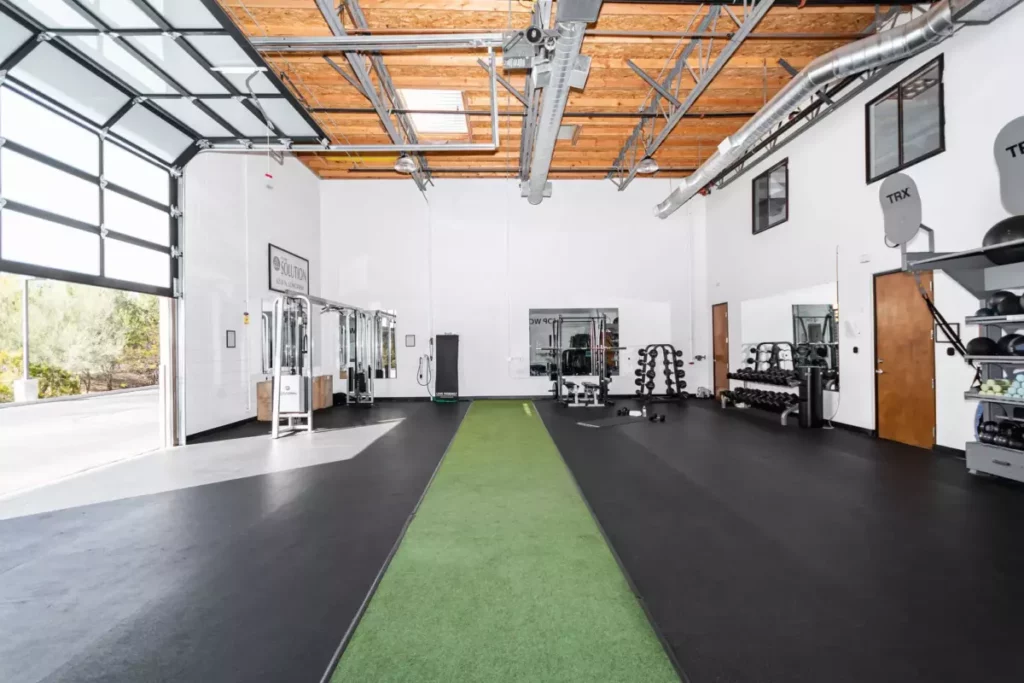
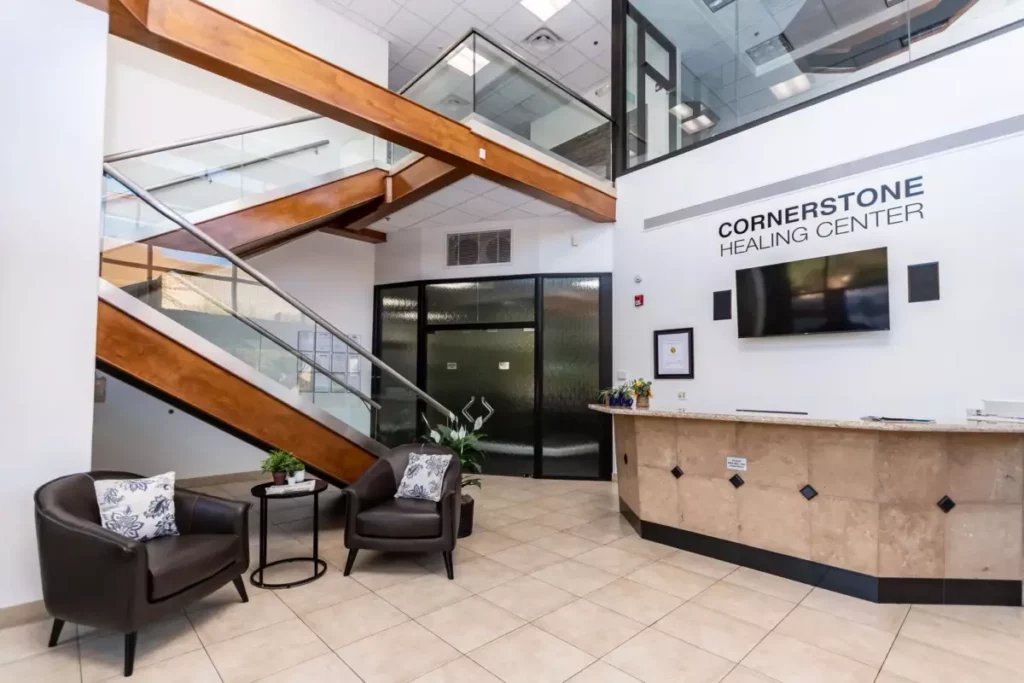


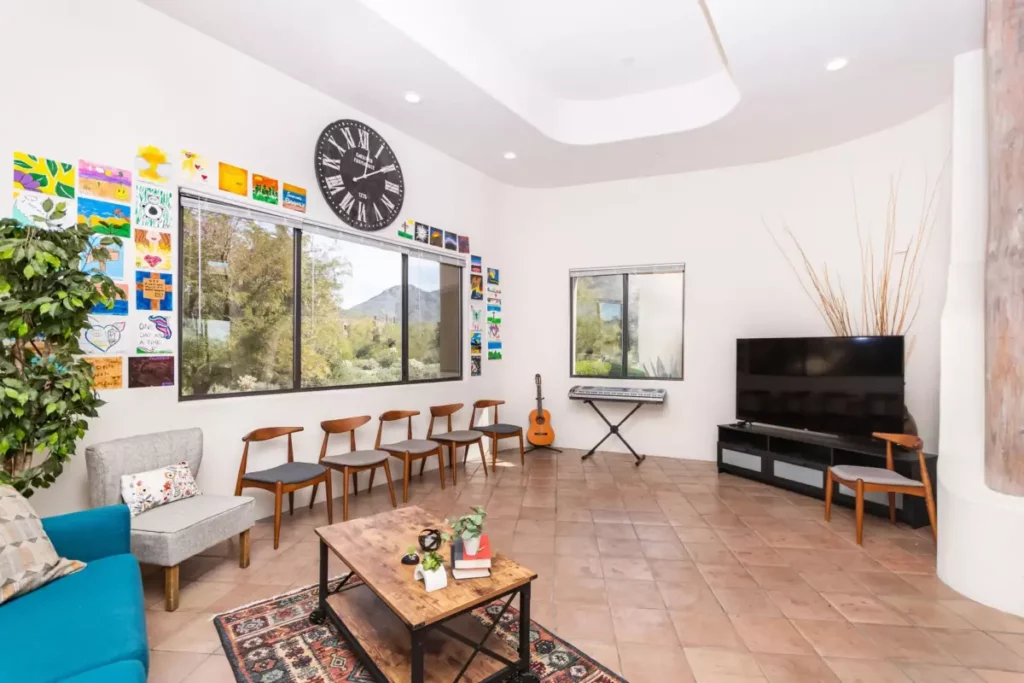

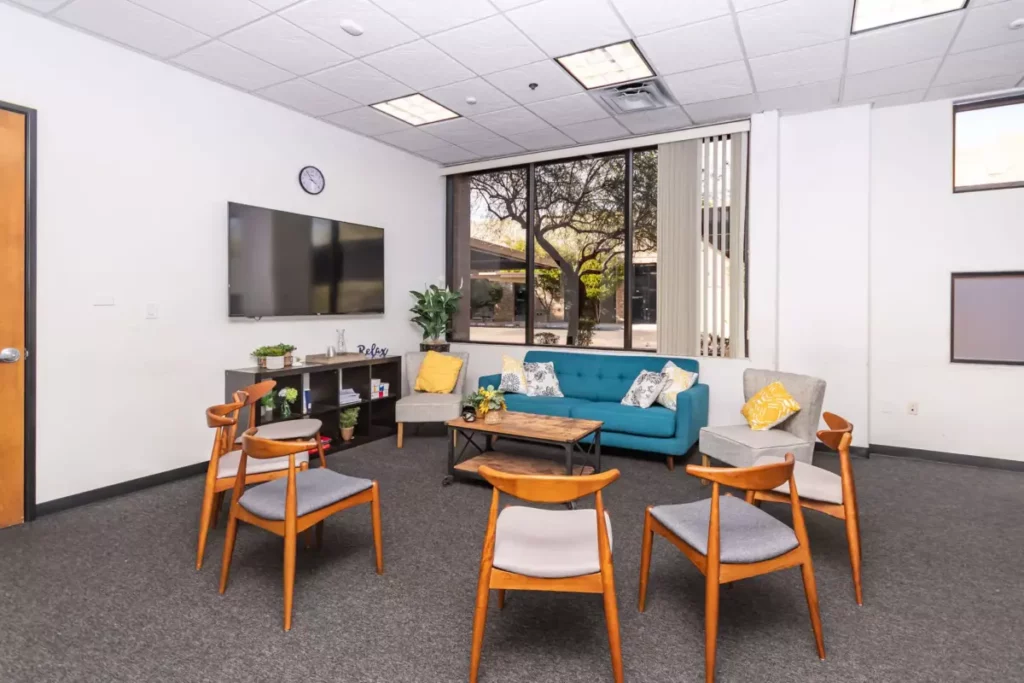
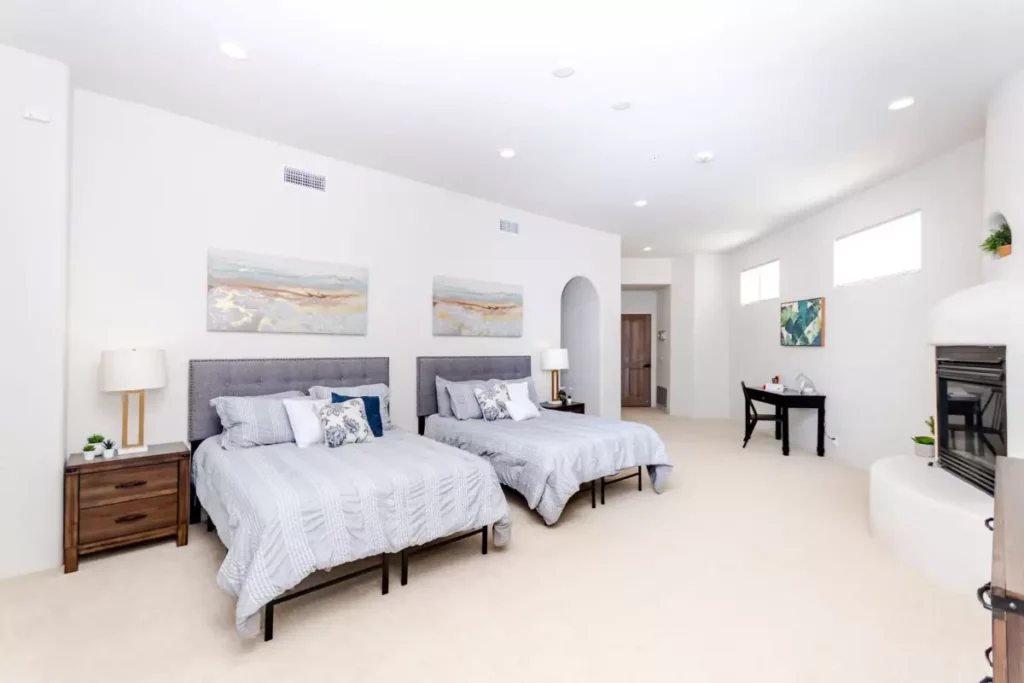




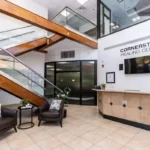








Our Scottsdale Behavioral Health Center
Cornerstone has a Behavioral Health Center treatment located in Scottsdale that offers lifesaving mental health treatment services. The environment we create for you promotes healing and focus while also ensuring your comfort. We have group and learning rooms that provide space for collective therapy sessions and educational workshops.
We have individual therapy rooms that provide privacy and comfort for one-on-one sessions, allowing our clients to work with their therapists on resolving personal issues. You have access to a large fitness facility as well.
At Cornerstone Healing Center, we are committed to delivering a holistic approach to mental health treatment, blending comfort, therapy, and personal development for a full experience.
Our Treatments for Depressive Disorders
Our Arizona Behavioral Health Center is designed to provide a supportive and safe space so you can heal at your own pace.
Integrative Recovery Approach
Our integrative approach addresses the physical, mental, and emotional sides of recovery,to uncover your path to healing.
Dedication Clinical Team
We offer a confidential space to explore the root causes of your depression, empowering you to build resilience and confidence.
Comprehensive Care
We’re here to walk alongside you, creating a plan that truly resonates with where you are in life and where you want to go
Broad Treatment Options
From intensive support to flexible options, our treatment programs are designed to meet you wherever you are in your journey to recovery.
What to Expect
- An assessment of your individual needs and goals to create a personalized addiction rehabilitation plan.
- A treatment plan for mental health or co-occurring (or dual diagnosis) behavioral health conditions.
- Evidence-based therapies include cognitive behavioral therapy, dialectical behavior therapy, and trauma-informed care.
- Holistic approaches include yoga, meditation, art therapy, and music therapy
- Nutrition counseling and physical fitness activities for overall health and wellness.
- Family involvement in the recovery process through Common Ground or family sessions.
- Aftercare planning that includes relapse prevention strategies for long-term success in sobriety.
Client Family Testimonial
Meet Our Treatment Team
Meet our experienced masters-level treatment professionals passionately dedicated to providing compassionate, expert care in our state-of-the-art rehabilitation facilities and recovery centers.
Clinical Director of Scottsdale Program
Eboni Fields, MS LPC
Eboni Fields, MS LPC, is a seasoned Clinical Director who brings over a decade of experience in behavioral health and substance abuse. She is a licensed professional counselor with a Masters in Mental Health Counseling from Grand Canyon University.
More About EboniClinical Director of Phoenix Program
Nate Bush, LCSW
Nate began his recovery journey in 2010 and earned a Master's in Social Work from ASU. He’s been in the Behavioral Health field since 2013. Specializing in CBT, DBT, and grief, Nate is now the Clinical Director of our Phoenix program, underlined by his passion for helping others who struggled with substance abuse issues as he did.
More About NateWhen is inpatient or residential treatment appropriate for depressive disorders?
Inpatient or residential treatment is necessary when Depressive Disorders severely impair daily functioning or when there’s a risk of harm to oneself. This level of care is suitable for intense, persistent symptoms unresponsive to outpatient treatments, providing a structured environment, intensive therapy, and continuous support.
Do you accept my insurance for your depressive disorder treatments?
Most likely, yes! Cornerstone accepts most major insurances. To be sure, you can fill out our commitment-free form to verify your coverage.
What level of care is needed to treat depressive disorders?
The required level of care for Depressive Disorder varies based on symptom severity and impact. Outpatient therapy, including psychotherapy and medication management, is often sufficient for mild to moderate depression. More severe cases, particularly those involving co-occurring mental health issues or substance abuse, may need more intensive outpatient programs or inpatient care. Consulting with a mental health professional is crucial to determine the most effective treatment plan.
How can I support a loved one with depression?
Supporting someone with Depressive Disorder involves empathy, patience, and encouragement. Listen actively and offer reassurance. Encourage seeking professional help and accompany them to appointments if possible. Educating yourself about Depressive Disorders helps in understanding their challenges. Most importantly, let them know they are not alone, and their feelings are valid and important.
Let's begin the journey together
Frequently Asked Questions
Knowledge base
Depression Information
Get Started Now
Call and speak with one of our caring team members about help for you or a loved one.

